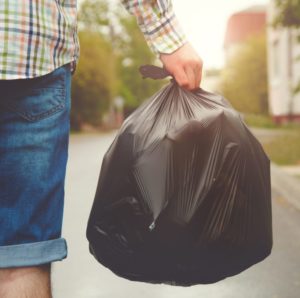Waste, Composting, and Recycling
The City of Easton’s solid waste is disposed of, primarily, at Chrin Brothers Landfill located on Industrial Drive in Williams Township, Northampton County. Emissions from decaying material directly contribute 3% of the City of Easton’s total GHG emissions and contribute to emissions in the Transportation sector via hauling of waste to and from facilities. Additionally, embodied energy within the items that we throw away might be harnessed through reuse and recycling of materials. It is in the City of Easton’s long-term interest to reduce waste at its source, expand recycling and its popular composting program, reduce food waste, encourage remanufacturing, and enable re-use of materials.
- Reduce solid waste generation.
- Incentivize residents to reduce quantity of waste sent to landfills such as increasing charges for curbside waste pickup while eliminating charges for recycling
- Eliminate single use plastics.
- Minimize waste at city festivals and large events.
- Provide information and education to residents and business owners on reducing waste and alternatives to single use products.
- Reduce waste generated from construction, implement LEED standards, and encourage reuse and retrofit of existing structures.
- Encourage reuse and repair of consumer products through education, repair workshops, redistribution systems, etc.
- Increase recycling and composting to redirect waste away from landfills.
- Add recycling containers to public parks and Centre Square.
- Encourage residential recycling through incentive and educational programs.
- Increase recycling opportunities for items that can’t be recycled curbside including batteries, fluorescent lights, electronics, tires, and textiles.
- Support an expanded compost program with curbside pickup option that includes residential and restaurants and businesses.
- Conduct a food waste study to develop strategies to reduce waste.
- Encourage eco-friendly remanufacture industries to locate in Easton.
- Reduce emissions from current waste management practices.
- Explore converting trash and recycling trucks to low or no emission vehicles.
- Encourage best practices at local landfills such as expanding methane to energy facilities.
- Ensure residents are aware of proper disposal methods for refrigerators and other appliances containing refrigerants and offer incentives for appliance pickup.


